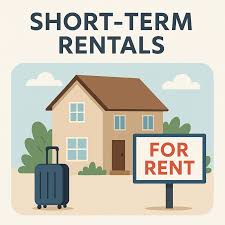Trevor Phipps
Why should Woodland Park and other Pikes Peak area communities have all the fun, when it comes to the sizzling hot debate over short-term rentals (STRs) and whether specific rules pertaining to these properties, and even moratoriums and bans, need to be enacted.
Over the past few years every city in the Ute Pass region has had to address the growing issue of STR) properties within their jurisdictions. The STR debate in Woodland Park got fiery at times, resulting in citizens successfully petitioning to essentially ban most STR businesses in residential zones.
Last year, the county sent a letter out to all residents saying they were starting to look into what to do about regulating STR businesses, which have reportedly exploded across Teller’s unincorporated areas. After waiting until the dust officially settled, following the STR battle in Woodland Park, the Teller County commissioners are now holding public meetings to receive feedback from the community.
Overall, the commissioners are hosting a total of five meetings across the county in different locations. The first meeting was held on July 8, at the Florissant Fire Department. Another forum took place last week at the Cripple Creek Heritage Center, and the third is slated for this Wednesday at 6 p.m. at the Ute Pass Cultural Center in Woodland Park. The final two meetings are scheduled for July 30 at the Teller County Sheriff’s Office in Divide, and August 6 at the Four Mile Hall in southern Florissant near Evergreen Station.
The first two meetings started with a presentation from the county defining what STR properties are, and emphasizing that they are currently not permitted by the current zoning/land use laws. County officials then brought up a variety of issues regarding STRs and educate the crowd on what other surrounding counties have done.
Just like previous STR meetings in the region, the discussions sparked strong opinions on both sides of the issue.
Most of the people concerned about the presence of STR businesses in the area brought up concerns about wildfire possibilities when STR guests may not be educated on fire bans when they stay in the area. Others voiced concerns about trash left out that attracts wildlife.
Several STR owners though, attempted to debunk most of the issues brought up by the county’s presentation. Many STR owners brought up the fact that their customers generate business for the local economy. One pointed out that the recent wildfires ignited in the area have been started by locals, not by STR guests.
The county has also had a survey posted for the last several weeks during which residents can voice their opinions. To fill out the survey, visit TellerCounty.gov.
Top Issues Regarding STR Businesses
Currently in Teller County, even though STR businesses are not permitted, there are an estimated 2,000 active STRs in operation. This equates to 12 to 14 percent of all the single family homes within the county.
During the initial presentation, county officials pointed out a number of emerging issues that have surfaced due to the increase of STRs over the past few years. Topping the list were concerns about emergency response and fire safety, including elevated fire risks and an increase in emergency calls.
Neighborhood character and environmental risks, which include noise, trash and parties, were also cited. “My peaceful neighborhood feels like a hotel,” the county’s presentation quoted a resident saying.
Another issue that was discussed was septic and water stress. While it may not be an issue in the county’s cities, some areas in rural Teller County have seen problems with septic system overloads and water overuse.
Housing affordability was also brought into question with residents concerned about fewer long-term rentals being available. Other complaints had to do with rising home prices leading to an increase in property taxes.
On the other side of the coin, if STR businesses were banned, it could hurt the local economy. STR businesses help boost tourism and support local businesses, according to real restate representatives. STRs also provide local jobs for cleaners and maintenance workers. “Tourism is our lifeblood-STRs bring customers,” another respondent stated, according to the county’s presentation.
In the end, the county presentation mentioned common STR policies that occur in other jurisdictions, including licensing and regulations with annual fees, health and safety inspections, limits on the number of STRs, or requiring owner occupancy or a representative nearby. The presentation also informed the public about what the cities within Teller County have done pertaining to STRs, and what surroundings counties have decided.
The presentation mentioned that such counties as Chaffee, Fremont, Summit, Park, Lake and Clear Creek require an STR license to operate that type of business. Some counties like Chaffee and Clear Creek Counties put a cap on how many STR businesses are allowed per year. Counties like Park and Lake don’t have a cap on the number of STRs, but cities inside them like Leadville and Alma do.
At the end of their presentation, the county officials brought up a couple possible solutions in order to prompt discussion from the participants. These include issuing licensing requirements, imposing STR caps and allowing or disallowing STRs in certain zones
After the county goes through with the public feedback process, they will then decide what to do about STRs within the county. It is not known yet if the county commissioners will decide if the issue will be put up for a citizens’ vote.





